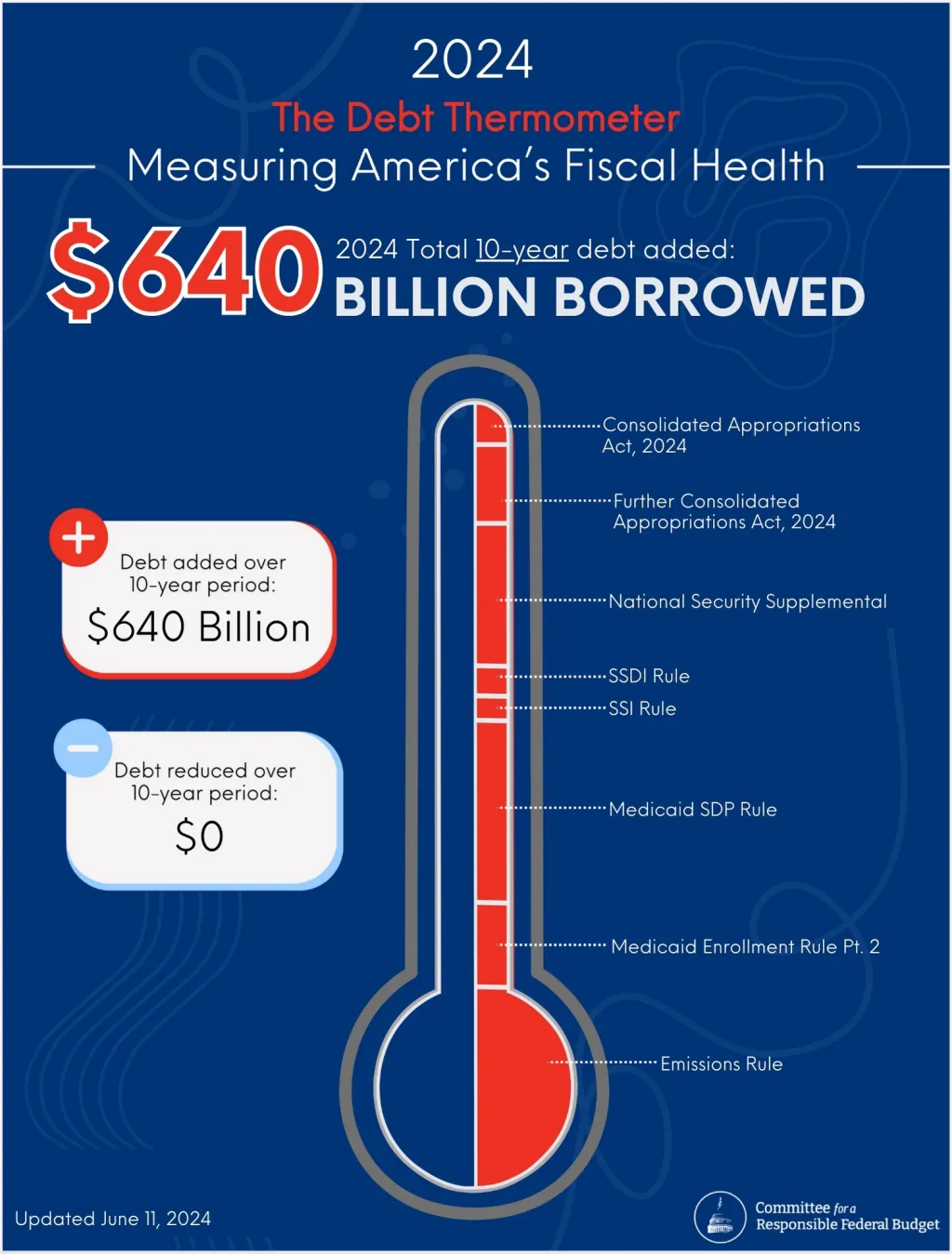The President Should Stop Borrowing Through Executive Action
This week, a Missouri court will hear oral arguments in a case challenging the legality of President Biden‘s student debt income-driven repayment plan, SAVE, which was established unilaterally by executive action in 2023. The SAVE program would cap monthly repayments at 5 to 10 percent of income above 225 percent of the poverty line and cancel unpaid interest, among other changes. However, federal courts have enjoined any forgiveness from SAVE or other income-driven repayment plans indefinitely as the case makes its way through the courts. The SAVE plan alone will cost about $275 billion over the decade if allowed to go into effect. The Administration also announced this week that those who enrolled in SAVE will stay in forbearance for at least another six months, meaning they need not make payments and will have any accrued interest forgiven over that period. This could add another billion dollars to the national debt.
In total, the Biden Administration has authorized $1.2 trillion of executive actions and announced an additional $220 to $750 billion in student debt related executive actions that have not yet been put into effect.
The following is a statement from Maya MacGuineas, president of the Committee for a Responsible Federal Budget:
“The Biden Administration has added $1.2 trillion to the ten-year national debt through executive actions, including $435 billion this year alone. These costs have contributed to the nation’s poor financial position, and borrowing more will make it worse.
Furthermore, the Administration’s approach to student debt – with unilateral actions, legal challenges, and on-again-off-again pauses – leaves borrowers in limbo and taxpayers on the hook. Instead, the President should abandon these unilateral actions and work with Congress on thoughtful reforms to address the cost and quality of higher education. The House and Senate have both put forward thoughtful bills that could serve as a starting point for comprehensive reform.
Unfettered borrowing cannot continue. Congress faces an important deadline this January when the statutory sequester will hit, and instead of ignoring the legally required cuts as they have in past years, they should implement a package of thoughtful savings. Likewise, Congress should extend and strengthen Administrative PAYGO and better restrict any President’s authority for unilateral borrowing. The norms of Congress and the President pushing through policies without paying for them and ignoring the processes in place that are supposed to restrict that borrowing should be changed to avoid what will otherwise be a certain fiscal calamity.”
The Debt Thermometer tracks how much policymakers add to or subtract from 10-year borrowing each year. In 2024 so far, $640 billion has been added to the 10-year debt.

###
For more information, please contact Matt Klucher, Assistant Director for Media Relations, at klucher@crfb.org.


